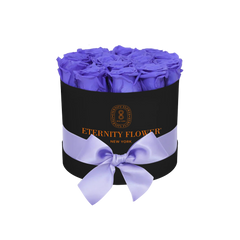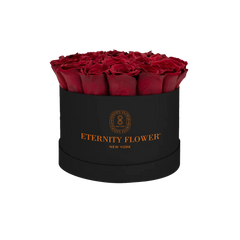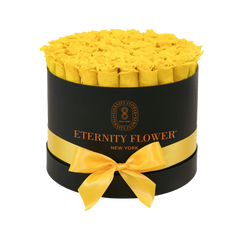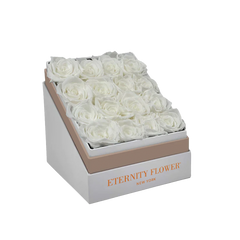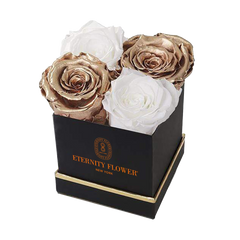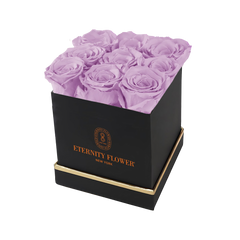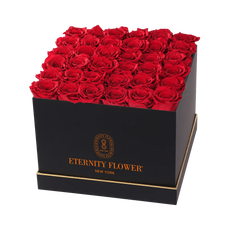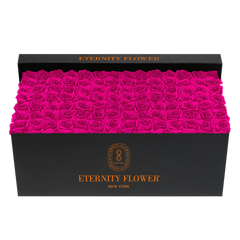Flowers have always been more than just a visual delight. For centuries, they've been intertwined with human emotions, playing a pivotal role in our most profound moments. From celebrations to condolences, flowers have a language of their own. One of the most touching messages they convey is that of forgiveness. When words fall short, and emotions run high, a bouquet can bridge the gap, conveying regret, understanding, and the hope for a fresh start.
Flowers for Forgiveness has been an age-old practice. It means admitting you did something wrong, showing you're sorry, and genuinely trying to fix what's broken. This article will talk about the hidden meanings of floral apologies. let's unwrap the silent language of floral apologies, understanding why and how they work, and which flowers are the best bearers of this heartfelt message.
Why Flowers Can Be Used for Forgiveness?

Flowers, with their delicate beauty and transient nature, mirror human emotions in many ways. Just as they can wilt under neglect, relationships can strain under misunderstandings. But, with care and nurturing, both can bloom again. Gifting flowers is symbolic of the giver's desire to nurture and mend the relationship. It's a gesture that shows care, regret, and the will to make things right.
Read more: Flower for Friendship: Fostering Meaningful Relationships
Blooms that Echo Remorse
Purple Hyacinth

The captivating purple hyacinth isn't just a beautiful spring flower; it's a powerful symbol of apology steeped in history. According to Greek mythology, the hyacinth emerged from the spilled blood of a young prince, forever marking a moment of grief and regret.
When offering a purple hyacinth as an apology, you acknowledge the gravity of your actions and the pain you may have caused. The deep purple hue reflects the depth of your remorse, conveying a heartfelt desire for forgiveness. This bloom is particularly appropriate for expressing sincere regret after a significant transgression.
White Tulips

The elegant white tulip speaks volumes with its pristine petals, symbolizing purity, innocence, and a clean slate. When presented as an apology, white tulips offer a hopeful gesture towards reconciliation. They acknowledge the misstep and express a genuine desire to move forward with a renewed sense of trust and understanding.
The white tulip's association with new beginnings makes it a perfect choice for mending fences after a misunderstanding or a minor disagreement. Its simple elegance conveys sincerity without overwhelming the recipient with an overly dramatic gesture.
Bluebells

The dainty bluebell, with its bell-shaped flowers and gentle sway in the breeze, embodies humility and unwavering constancy. These qualities are precisely what make the bluebell a powerful choice for an apology bouquet.
By presenting bluebells, you acknowledge your mistake and express your unwavering commitment to the relationship. The bluebells represent your desire to learn from your actions and build trust anew. This delicate flower is a touching way to ask for another chance, particularly after a situation where your actions may have caused doubt or insecurity in the recipient.
Flowers for Apology: The Path to Forgiveness
Sometimes, words aren't enough. When you've misstepped and need to express sincere regret, a carefully chosen bouquet can speak volumes. Flowers for apology offer a beautiful and symbolic way to convey remorse, take responsibility, and pave the way for forgiveness.
Choosing the Right Bloom:
The most impactful apology flowers consider both the severity of the situation and the recipient's taste. Here are some blooms that traditionally convey heartfelt apologies:
-
White Lilies and Tulips: These classic white flowers symbolize purity, innocence, and a fresh start. A bouquet of white lilies or tulips expresses a sincere desire to wipe the slate clean and move forward.
-
Soft Pink Flowers: Pink roses, lilies, or tulips represent affection, care, and a desire to mend a broken bond. Opt for softer pinks for a more subtle apology and deeper pinks for a more passionate plea for forgiveness.
-
Yellow Sunflowers or Daffodils: Yellow flowers traditionally symbolize friendship, cheerfulness, and a hopeful apology. Lighter yellows like those found in sunflowers or daffodils are perfect for conveying a desire to brighten things up after a misunderstanding.
Beyond the Bloom:
While flowers are a beautiful gesture, a heartfelt apology requires more than just a bouquet. Here are some additional tips to ensure your floral offering resonates:
-
Pair it with a handwritten note: Express your remorse and take responsibility for your actions in a heartfelt note accompanying the flowers.
-
Consider fragrance and allergies: Strong floral scents can be overpowering for some. Opt for lighter-scented blooms or unscented varieties if unsure. Additionally, lilies are toxic to cats and dogs, so avoid them if the recipient has furry companions.
-
Potted plants for a lasting gesture: A potted orchid or peace lily symbolizes growth and a fresh start, offering a longer-lasting reminder of your apology.
Choosing Flowers for the Severity of the Apology:
-
Minor Misunderstanding: A small bouquet of cheerful yellow sunflowers or white daisies can convey a lighthearted apology and a desire to move forward.
-
More Serious Transgression: A more substantial bouquet of white lilies or pink tulips expresses deeper sincerity and regret.
How to Ask for Forgiveness with Flowers

-
Choose Wisely: It's essential to pick a flower that resonates with the message you want to convey. Research or consult with a florist to understand the meanings behind each bloom.
-
Personalize Your Bouquet: Add a handwritten note. Express your feelings, acknowledge your mistake, and state your desire to make amends.
-
Deliver in Person: If possible, hand-deliver the flowers. This personal touch shows sincerity and a genuine desire to reconcile.
-
Follow Up: Flowers are a gesture, a starting point. Ensure you follow up with actions that prove your commitment to mending the relationship.
Conclusion
In the intricate dance of human relationships, flowers become more than just bystanders. They become active participants, helping us navigate the complex web of emotions. So, the next time you find yourself searching for words or a way to say "I'm sorry," let "Flowers for Forgiveness" be your guide. If you're still looking around, eternal roses from Eternity Flower can definitely be put into your consideration!





